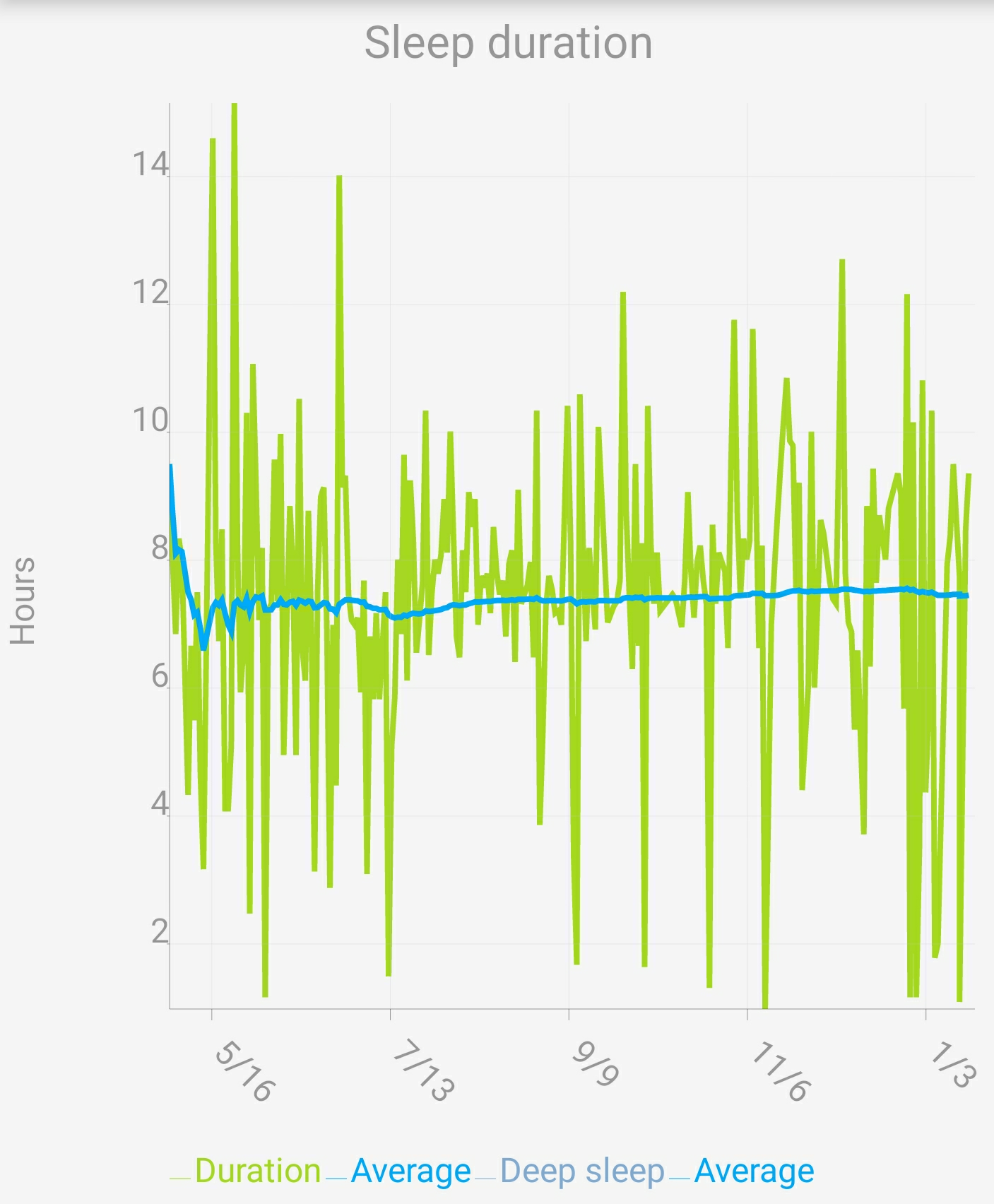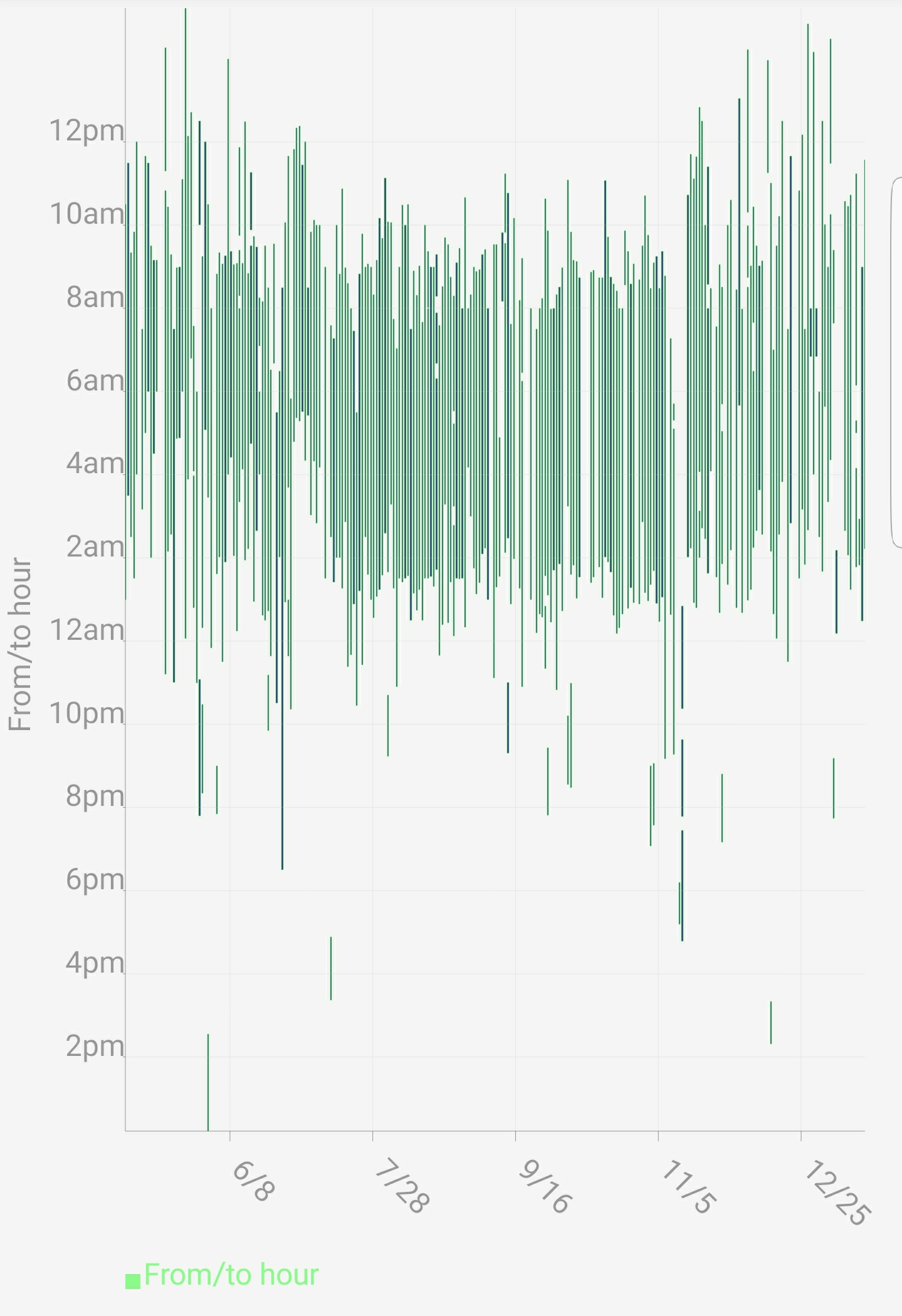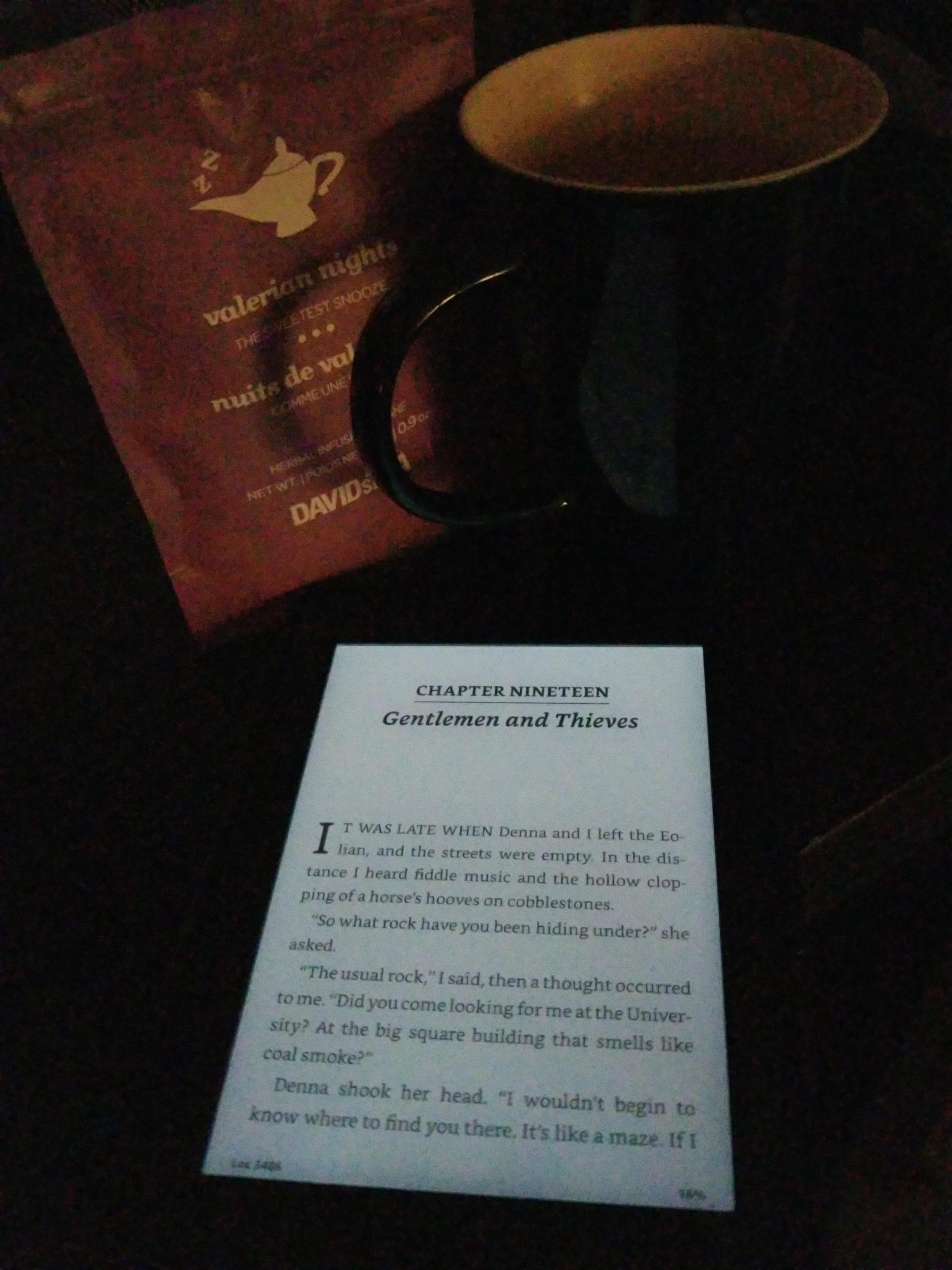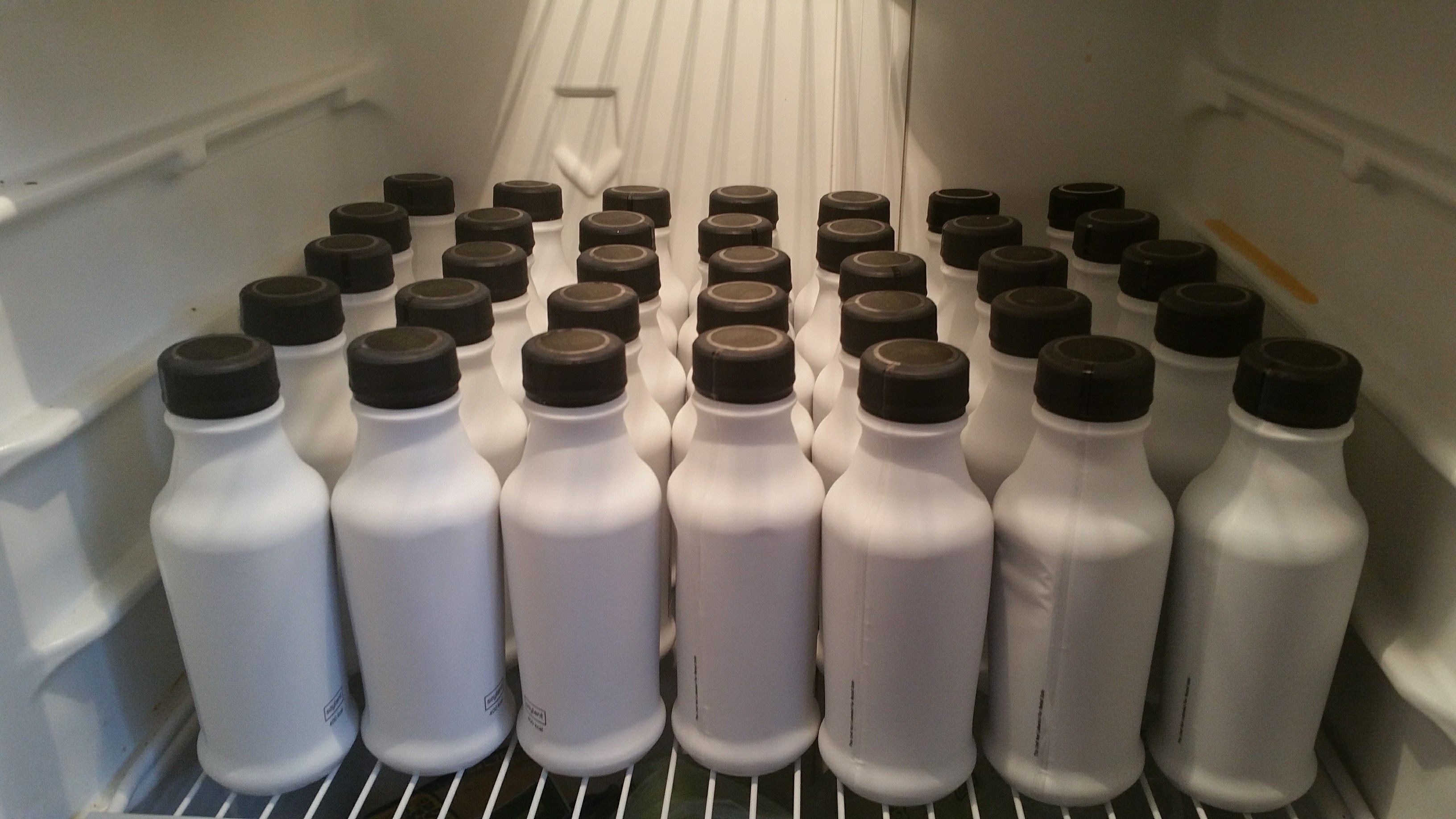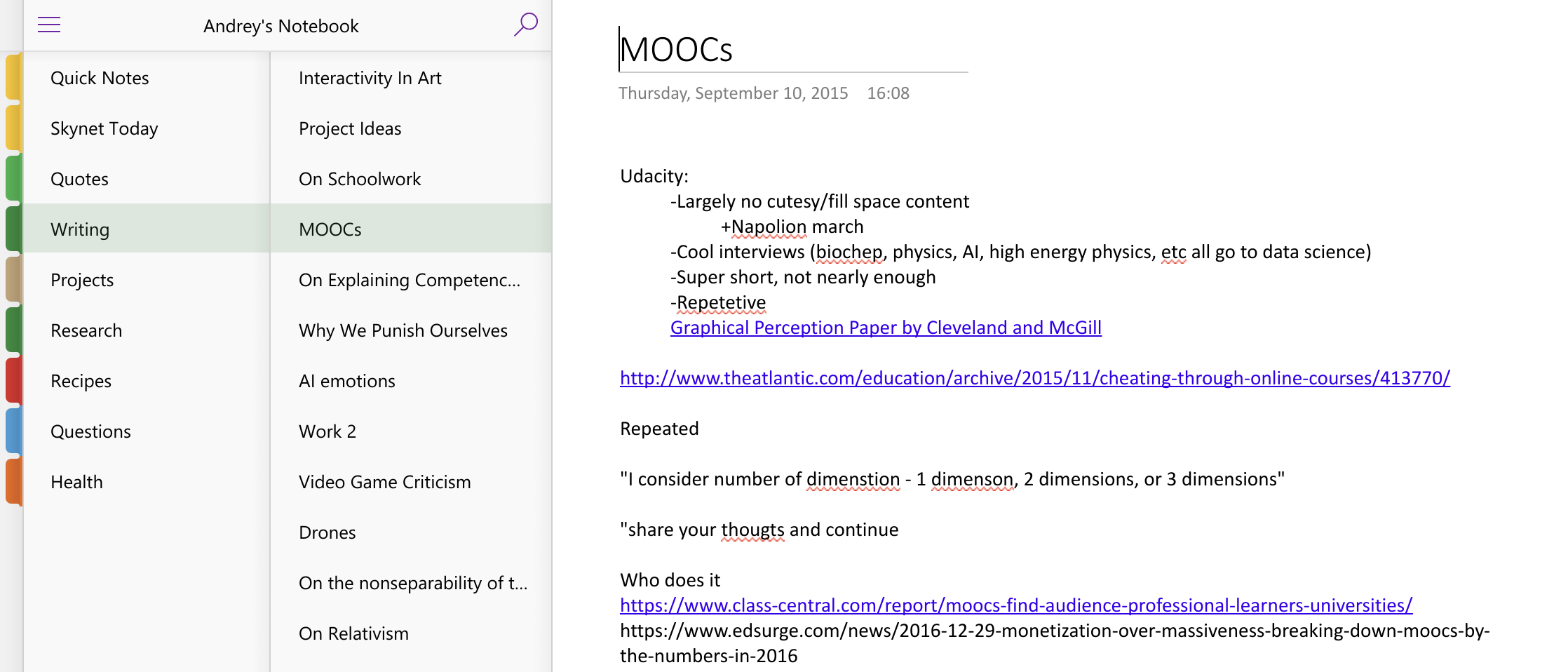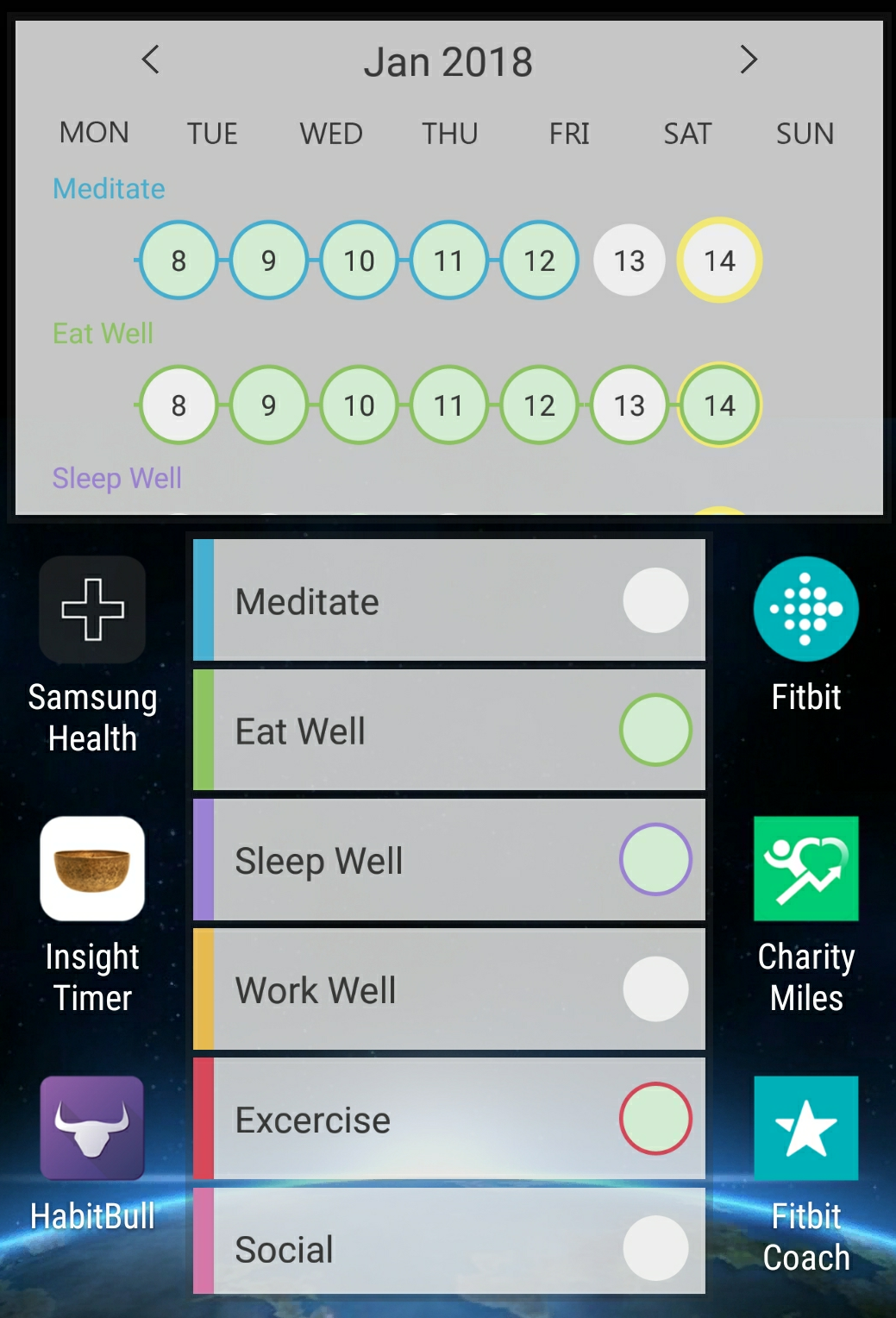Habits and Tools, Old and New
The things I do and use, and hope to start doing and using |
The Prelude
“We are what we repeatedly do. Excellence, then, is not an act, but a habit.”
-Aristotle (except actually Will Durant)
Common wisdom, right? Yet, somehow it took me until recently to seriously take stock of my time management and habits. In high school and undergrad, my time management could be boiled down to “do the next thing”. I more or less kept adding work until it was just about too much, and then did whatever needed doing to keep up.
Turns out, that’s not a great way to go about things. After graduating, I had a glut of free time on my hands and little idea of what to do with it all. So I started getting more methodical by consistently making time for writing, excercising, and all the fun splendor of life. And I found various tools - apps, subscriptions, things - to make that much easier. Now, a few years later, I no longer have a glut of free time but still want to do all this stuff (blog writing, being healthy, etc). And so it finally hit me that I need to double down on this habits and routine thing; my no calendar, no todo list, no consistency lifestlye will not work anymore.
So, despite not being a new year resolutions kind of person, the beginning of this year was marked for me with a whole lot of reflection about what habbits I wanted to commit to going forward, and what tools I would use to fullfil that commitment. This, on top of several years of slowly building a set of habits and tools I had not used prior to graduating undergrad. So, here you are, reading my reflection on all these wonderful habits and tools. If that sounds boring, stop here, but if not - I truly do think these things have made a positive impact in my life, and recommend you consider them for your own.
The Habits
Sleep
Old: get enough sleep
When I’ve described my often surprising workloads, people have often asked me ‘how much do you sleep’ or commented that I must sleep very little. No. Going back many years, to at least the sophemore year of college, I recognized the importance of sleep and the stupidity of all nighters. This may have translated to averaging only 7 or 6 hours most weeks - but average 7 or 6 hours I did.
Not so consistent… but on average not bad.
New: wake up consistently, night ritual
This is a tough one. Since the end of high school, I have never managed to wake up at a consistent time. Not even when I started working as a software engineer - my initial enthusiasm for showing up early quickly faded and I went back to winging it based on how I felt on the day. Turns out, not waking up at a consistent time makes it hard to have a consistent morning routine, and a morning routine is pretty important for having a routine at all. And, it makes it harder to wake up at all. So, time for fancy alarm clocks, lights that turn on at the same time as the alarm, all that.
Pretty crazy, right?
But, more importantly, I have decided to have better sleep. Specifically, to fall asleep more easily and calmly. And so, I decided to stick to the whole array of recommended pre-sleep activities - dim the lights, don’t look at screens, drink special sleep-time tea with honey, read. And it’s great! Commiting to spending the last half hour prior to sleep in this fashion has made me feel far more tranquil as I go to sleep than I used to.
Highly recommended
Excercise
Old: Boxing,Fitstar
You know what’s great? Fitness classes. Seriously, I’ve not once excercised as rigorously by myself as when led by a good instructor. Practically every time I went to a boxing gym I felt that I was barely able to keep up. So, I continue taking kickboxing classes to this day and hope to not stop.
You know what else is great? Not having to go to the gym to excercise. And you dont! All one needs to excercise is a hard floor (though a mat does help). Going back even to my undergrad days, I was often unable to make it to the gym. So I just excercised at home, and kept in quite good shape doing so.
But what’s better than either of these? The best of both! Last year I realized apps like FitStar (and Nike Traning Club, and Skimble) could be used to excercise at home while still pushing me to my limit like trainers do. Of course, they are not quite as effective, but still better than excercising driven by my motivation alone.
Fitstar. It works exactly as you
New: Morning Kick Off
All too often, work would get heavy, I would have to pick my battles, and I’d miss the gym for days, even weeks. That does not feel good, seem good, or is good. So my new idea? Excercise for 10-15 minutes right upon waking up. Specifically, do a 10-15 Fitstar excercise. Not only does that keep me not feeling like I’ve gone for weeks without excercising, but it also makes it easier for me to wake up and get going. Not easy to keep up, but worth the effort.
Diet
Old: Soylent
I already made my case for Soylent (TDLR - convenient, healthy, affordable, futuristic, makes real food taste even better), and years later the case still holds up. More than holds up, actually - with the introduction of Soylent 2.0 and Soylent Coffee and Cocoa, the convenience and flavor have both seen a significant boost in the past few years. Most I tell this still scoff, but whenever I am so inconvenienced as to have to eat real food for lunch I am reminded of how much time it gets just to get food and how sluggish I feel afterwards.
A photo from years ago. I still have about this many bottles at home at the start of every month.
New: Meal squares
But, let’s face it, drinking two bottles of nutritious goo can get a bit repititious. So, I was most excited by my recent discovery of MealSquares. These little nutrition bricks are dry, dense, and chalky - but also contain bits of chocolate, and go down fantastically when paired with a drink such as tea (or Soylent!).
My Current Lunch
Mental Health
Old: Meditation
This too, I have written about. More and more, I am convinced that meditation will gradually become as commonly acknowledged as a crucial component of a healthy life as physical excercise. Nowdays it’s easier than ever to start - Calm, Headspace, and many other apps tout their ability to teach you the magical skill of meditation. I used both Calm and Headspace early on, and do recommend them for getting started. But I quickly found their idea of ‘listen to lectures about life’ to be pretty far removed from actual meditation, and largely rely on the far simpler Insight Timer.
I have not been the best at this… but trying to get better.
New: Gratitude Journaling
I started keeping a journal more than a year ago now. Not for mental health reasons, just for… fun. Something I found when catching up on this journaling (sometimes whole weeks at a time, sometimes even more), is that trying to recall some fun event from a while ago almost made me feel like how I felt when it actually happened. Furthermore, consistently writing down this journal just made me appreciate the mundane little milestones of life just a little more.
Just about the year mark, these started showing up. I use the Journey app, which I recommend, though there are many good options.
So I was not surprised to find out there was another surprisingly simple scientificaly backed way of maintaing mental health - gratitude journaling. It used to be this would seem to touchy-feely for me, but no more. My plan, given my whole experience with journaling, is to stick to the weekly cadence by writing down some things I am grateful for from the past week. Too early to tell if I’ll stick to this, but I am eager to try it out for this next year.
Productivity
Old: Email Cleaning, Calendar, OneNote, HabitBull
This stuff is boring but useful, so let’s keep it brief:
- I try to keep my email inbox nearly empty, so every email still not deleted or categorized to a folder is an ongoing TODO item. Having an empty inbox is rare, and feels great. I’ve tried to use Inbox’s whole email snoozing stuff off and on, but find it’s overkill most of the time.
- I used to be terrible about keeping a calendar, but forgetting some significant things last year made me come around - I now track my meetings, classes, everything.
- I’ve tried different approaches to note taking, idea tracking, info dumping, all that. OneNote’s is the one I prefer by far. The idea of having a notebook with various sections and pages within each section just works wonderfully for a great many applications.
All the stuff I have been meaning to get around to writing for years, and have yet to write.
- I first started thinking about my habits years ago, and figured there must be a to-do app that captures the entirely intuitive ‘secret’ (often attributed to Jerry Seinfeld) that having a streak to keep going is a good motivator. Today that is indeed the case, there are dozens of apps for this, but a few years ago HabitBull (now called Habit Tracker) was one of very few. I started using it years ago and still use it today.
A good week!
New: todoist, rescuetime
Despite having this email and OneNote and Calendar system, I was still not as productive as I wanted. I found that I never managed to make time for stuff like writing for this blog, and often forgot smaller chores til far too late. So this year I had a new idea: spend 5-10 minutes in the morning reflecting on my goal for the day, and jot them down in a todo app. I had always found todo apps pretty useless, as I inevitably got behind and abandoned the endeavour. So this time, I plan to stick to keeping the todo items on at most a day-week timeline, and striving for zero tasks just as with my email inbox. This has already paid off in just a few weeks, with me being better able to keep track of various small chores as well as get around to things like writing the very text you are reading.
My TODO app, Todoist. Works like a charm.
As you may have noticed, this post has quite a few metrics and graphs. Partly this is just for fun, but I do also think that the knowledge that these metrics and graphs are out there serves as extra motivation to follow through on my ambitions. Inspired somewhat by Andrej Karpathy, I decided to take this to the next level this year with rescuetime. Basically, it logs every single thing I do on my phone and computer, and tells me how much time I spend doing things that are productive (like this) or unproductive (like browsing reddit). I honestly doubt it being there will change my behavior much, but then again I have felt that it has gotten me to visit distracting websites already so I may be wrong there.
My first week with this, tracked.
Closure
So there you had it, an infodump on all the habits I have cultivated and plan to cultivate, along with the best tools for said cultivation. Hopefully, if you were so inclined as to read all this a few of these might prove a fruitful addition to your own life.
Previous Post | Next Post
 This work is licensed under a Creative Commons Attribution-ShareAlike 4.0 International License.
This work is licensed under a Creative Commons Attribution-ShareAlike 4.0 International License.

